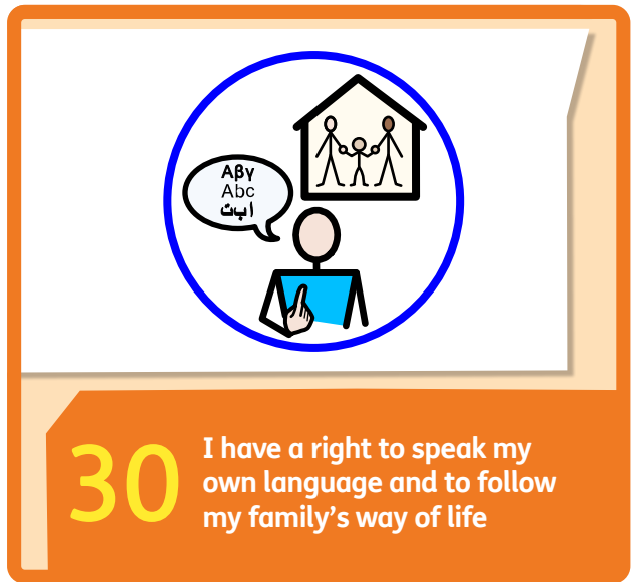Equality and Diversity
Statement of Intent
Lord Street Primary School recognises that certain groups in society can be disadvantaged because of unlawful discrimination they may face due to their race, sex, disability, gender reassignment, marriage/civil partnership, religion/belief, sexual orientation or age.
The policy aims to put in place a range of actions to eliminate prejudice, unlawful discrimination and victimisation within the school community and workforce.
Legal framework
This policy has due regard to all relevant legislation and statutory guidance including, but not limited to, the following:
- Human Rights Act 1998
- The Special Educational Needs and Disability Regulations 2014
- Education and Inspections Act 2006
- Equality Act 2010
- The Equality Act 2010 (Specific Duties and Public Authorities) Regulations 2017
- Public Sector Equality Duty (PSED)
- Data Protection Act 2018
- The UK General Data Protection Regulation (GDPR)
This policy also has due regard for non-statutory guidance, including the following:
- DfE (2014) ’The Equality Act 2010 and schools’
This policy operates in conjunction with the following school policies:
- Admissions Policy
- Complaints Procedures Policy
- Equal Opportunities Policy: Pupils
- Staff Equality, Equity, Diversity and Inclusion Policy
- Data Protection Policy
The Equality Act 2010 provides a modern, single legal framework with three broad duties:
- Eliminate discrimination harassment and victimisation
- Advance equality of opportunity
- Foster good relations
For the purpose of this policy, the Equality Act 2010 will be referred to as ‘the Act’. The school fully understands the principles of the Act and the work needed to ensure that those with protected characteristics are not discriminated against and are given equal opportunities. Protected characteristics, under the Act, are as follows:
- Age
- Disability
- Race, colour, nationality or ethnicity
- Sex
- Gender reassignment
- Maternity and pregnancy
- Religion and belief
- Sexual orientation
- Marriage and civil partnership
The Act makes it unlawful for the responsible body of a school to discriminate against, harass or victimise a pupil or potential pupil:
- In relation to admissions.
- In the way it provides education for pupils.
- In the way it provides pupils access to any benefit, facility or service.
- By excluding a pupil or subjecting them to any other detriment.
The responsible body for the school is The Pennine Trust.
The school’s liability not to discriminate, harass or victimise does not end when a pupil has left the school, but will apply to subsequent actions connected to the previous relationship between school and pupil, such as the provision of references on former pupils or access to “old pupils” communications and activities.
The school will promote equality of opportunity for all staff and job applicants and will work in line with the Staff Equality, Equity, Diversity and Inclusion Policy.
Principles and Aims
We see all learners and potential learners, and their parents, as of equal value, regardless of any protected characteristic. Our policies, procedures and activities will not discriminate but must nevertheless take account of differences in life-experience, outlook and background, and in the kinds of barriers and disadvantages which people may face in relation to any protected characteristic.
The school will:
- Promote race equality and have due regard to eliminating unlawful racial discrimination, promoting equality of opportunity and good relations between people of different racial groups.
- Promote disability equality, ensuring equality of opportunity, eliminating unlawful discrimination and disability-related harassment and encouraging participation by disabled people in public life.
- Promote gender equality by eliminating unlawful discrimination and harassment, and promote the equality of opportunity amongst individuals of all genders.
Transgender people are explicitly covered by the PSED. For the purposes of this policy, the term ‘transgender’ refers to an individual whose gender expression or identity is different from that traditionally associated with the sex they were assigned at birth. The school will respect the confidentiality of those seeking gender reassignment and will provide a supportive environment within the community.
The school is opposed to all forms of prejudice and recognises that children and young people who experience any form of prejudice-related discrimination may fare less well in the education system. The school will ensure that all staff comply with the appropriate equality legislation and regulations. The school’s Admissions Policy will not discriminate against any protected characteristic in any way.
The school will:
- Ensure staff are aware of their responsibilities, given necessary training and support, and report progress to the relevant committee of the Board of Trustees.
- Ensure recording and reporting of incidents related to equality and diversity are robust and that data informs school policy.
- Foster positive attitudes and relationships, a shared sense of cohesion and belonging, and ensure this is promoted in our policies, procedures and activities.
- Observe good equalities practice in staff recruitment, retention and development, and ensure all policies and procedures benefit all employees and potential employees regardless of any protected characteristic, and with full respect for legal rights relating to pregnancy and maternity.
- Reduce and remove inequalities and barriers that already exist.
- Engage with a range of groups and individuals to ensure that those who are affected by a policy, procedure or activity are consulted and involved in the design of new policies, and in the review of existing ones.
- Ensure policies, procedures and activities benefit society as a whole, both locally and nationally, by fostering greater social cohesion, and greater participation in the public life of everyone, regardless of any protected characteristic.
- Ensure staff promote an inclusive and collaborative ethos in the school, challenging inappropriate language and behaviour, responding appropriately to incidents of discrimination and harassment, and showing appropriate support for pupils with additional needs, maintaining a good level of awareness of issues surrounding equality.
Roles and responsibilities
The Board of Trustees will:
- Ensure that the school complies with the appropriate equality legislation and regulations.
- Meet its obligations under the PSED to:
- Publish at least one equality objective at least every four years.
- Update and publish information every year to demonstrate school compliance with the PSED.
- Publish gender pay gap information
- Ensure that the school’s policies and procedures are developed and implemented with appropriate equality impact assessments informing future plans.
- Ensure that the school’s Admissions Policy does not discriminate in any way.
- Ensure equal opportunities in its staff recruitment and promotion practices, professional development programmes and in membership of the governing board.
- Proactively recruit high-quality applicants from under-represented groups.
- Provide information in appropriate and accessible formats.
- Ensure that the necessary disciplinary measures are in place to enforce this policy.
The headteacher will:
- Implement this policy and its procedures.
- Ensure that all staff members receive the appropriate equality and diversity training as part of their induction and CPD.
- Ensure that all parents, visitors and contractors are aware of, and comply with, the provisions of this policy.
- Actively challenge and take appropriate action in any case of discriminatory practice.
- Address any reported incidents of harassment or bullying in line with DfE guidance.
- Report annually to the Local School Committee on the progress of implementing the provisions of this policy.
Employees will:
- Be mindful of any incidents of harassment or bullying in the school.
- Address any minor issues of harassment or bullying and report any major breaches of the policy to the headteacher.
- Identify and challenge bias and stereotyping within the curriculum and the school’s culture.
- Promote equality and good relations, and not harass or discriminate in any way.
- Monitor pupils’ progress and academic needs to ensure the appropriate support is in place.
- Keep up to date with equality legislation and its application by attending the appropriate training.
Pupils will:
- Not discriminate or harass any other pupil or staff member.
- Actively encourage equality and diversity in the school by contributing their cultural experiences and values.
- Report any incidences of bullying or harassment, whether to themselves or to others, to the head of year or to another member of staff.
- Abide by all the school’s equality and diversity policies, procedures and codes.
- The school will have an equality page on its website, in order to demonstrate how it is complying with the PSED in the Equality Act 2010, and advancing equality of opportunity.
Equality objectives
The school is committed to promoting the welfare and equality of all its staff, pupils and other members of the school community.
To achieve this, the school has established the following objectives:
- Monitor changes to the curriculum to ensure they result in good outcomes for pupils in all vulnerable groups, and to review the curriculum considering new performance measures
- Offer appropriate qualifications in English for pupils in all vulnerable groups
- Implement effective strategies to support pupils in all vulnerable groups following linear exam courses
- Improve the quality of support for pupils in all vulnerable groups in the classroom
- Continue to explore the use of new technologies to support pupils in all vulnerable groups in accessing their learning.
The school will regularly review the steps being taken and the progress made towards the achievement of these objectives and, in line with the specific duties of the PSED, publish this information on the school website every year. The school will update and publish its equality objectives at least every four years.
Collecting and using information in accordance with the requirements outlined in the Data Protection Act 2018, personal data will be lawfully collected and processed in line with the principles and practices outlined in the Data Protection Policy and only for specified, explicit and legitimate purposes, e.g. to comply with the school’s legal obligations.
The school will collect equality information for the purpose of:
- Identifying key issues, e.g. unlawful discrimination in teaching methods.
- Assessing performance, e.g. benchmarking against similar organisations locally or nationally.
- Taking action, e.g. adapting working practice to accommodate the needs of staff who share protected characteristics.
Publishing information
The school will update its equality objectives at least every four years and publish on the school website. The school will publish information on the school website every year which will show the progress made towards the achievement of the equality objectives.
Promoting equality
In order to meet our objectives, the school has identified the following priorities:
- The school will provide auxiliary aids that are directly related to disabled pupil’s educational needs as a reasonable adjustment, so they can integrate wholly in all parts of school life.
- Staff will ensure that all pupils are able to take part in extracurricular activities and residential visits, and the school will monitor uptake of these visits to ensure no one is disadvantaged on the grounds of a protected characteristic.
- The school will ensure that all forms of prejudice-motivated bullying is taken seriously and dealt with equally and firmly.
- There will be differential schemes of work designed to meet the abilities and learning styles of all pupils.
- There will be a clearly defined disciplinary system stipulated in the Behaviour Policy, which will be consistently enforced.
- The school will increase access for disabled children and young people to the school curriculum and will take necessary steps to meet pupils’ needs by using a variety of approaches and planning reasonable adjustments for disabled pupils, enabling them to take as full a part as possible in the activities of the school.
- The school will ensure there is adequate access to the physical environment of the school.
- The school will improve the delivery of written information to disabled children and young people.
- The school will seek the views of advisory staff, outside agencies and local schools.
- Throughout the year, the school will plan ongoing events to raise awareness of equality and diversity.
The school will consult with stakeholders to establish equality objectives and draw up a plan based on information collected on protected groups and accessibility planning.
Any reports of bullying and prejudice will be carefully monitored and dealt with accordingly. Annual training will be given to all staff to ensure that they are aware of the process for reporting and following up incidents of prejudice-related bullying.
Addressing prejudice-related incidents
The school is opposed to all forms of prejudice. The school will ensure that pupils and staff are aware of the impact of prejudice. The school will address any incidents immediately and, where appropriate, report them to the Trust.
Complaints procedures
The school aims to resolve all complaints at the earliest possible stage and is dedicated to continuing to provide the highest quality of education possible throughout the procedure. Any person, including a member of the public, is able to make a complaint about the provision of facilities or services that the school provides.
The school will adhere to the Complaints Procedures Policy to ensure a straightforward, impartial, non-adversarial process, that allows a full and fair investigation, respects confidentiality and delivers an effective response and, appropriate redress. If a complaint has completed the school’s process and the complainant remains dissatisfied, they have the right to appeal, as outlined in the Complaints Procedures Policy.
The school works to develop good professional relationships between colleagues; however, we understand that sometimes conflicts may arise. Through maintaining open communication, we want our employees to feel able to raise any grievances so that appropriate and effective solutions can be put in place. Grievances raised by staff members will be processed in accordance with the Trust’s Grievance Policy.
Curriculum
All pupils will be entitled to access a broad and balanced curriculum and to teaching and learning opportunities which meet their needs, including extra support where this has been identified as a statutory need.
When planning the curriculum, the school will take every opportunity to promote and advance equality. When teaching the curriculum, the school will promote equality and will not subject individuals to discrimination. The school will develop an appropriate curriculum for all pupils in all vulnerable groups and will ensure PSHE lessons are designed for pupils to develop their knowledge of the world and the importance of equality.





















